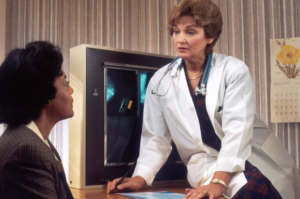
Most Common Signs of Medical MalpracticeMost Common Signs of Medical Malpractice
Obtaining medical care means you aspire to have better, maybe worse. Regrettably, medical negligence may result in more severe problems than the initial illness and maybe even death. Any medical errors might be more prevalent than you might imagine. A 2017 poll of over 4,000 doctors across more than 25 specialties found 55% of doctors are appointed in a medical malpractice lawsuit. In this guide, we discuss with you some common indications of medical malpractice to know about.
Poor Care
 You might be treated at a center where the team isn’t handled appropriately. It might cause a group working with more individuals than they could provide adequate maintenance. Neglect could result in inappropriate therapy. Excessive tiredness could result in fatal mistakes. Suppose you’re in a health situation, like a hospitalization, in which employees didn’t respond to you personally after having assistance or made mistakes that caused you injury. If that’s the scenario, this might be potential medical malpractice.
You might be treated at a center where the team isn’t handled appropriately. It might cause a group working with more individuals than they could provide adequate maintenance. Neglect could result in inappropriate therapy. Excessive tiredness could result in fatal mistakes. Suppose you’re in a health situation, like a hospitalization, in which employees didn’t respond to you personally after having assistance or made mistakes that caused you injury. If that’s the scenario, this might be potential medical malpractice.
Late Diagnosis
 Late Identification Hunting medical care following a potential illness is essential to stop the problem from becoming worse. Health screenings are made to identify issues and work to fix them quickly. When you visit a physician with a present scenario, you try to ascertain what’s occurring according to your symptoms, and you need to operate to see to the issue. When a physician fails to recognize the symptoms of a severe issue or makes a misdiagnosis, these activities may constitute medical malpractice.
Late Identification Hunting medical care following a potential illness is essential to stop the problem from becoming worse. Health screenings are made to identify issues and work to fix them quickly. When you visit a physician with a present scenario, you try to ascertain what’s occurring according to your symptoms, and you need to operate to see to the issue. When a physician fails to recognize the symptoms of a severe issue or makes a misdiagnosis, these activities may constitute medical malpractice.
Improper Testing
 A vital portion of adequately identifying the ideal treatment recommendations is doing proper testing through blood tests or imaging studies. Improper testing may require the following medical malpractice forms. For example, erroneous assessment is medicated and arranged; mutual testing based on documented symptoms is not dictated, and additional analysis is not predicated on the first outcomes. Administering the right test to the ideal person at the ideal time helps to ensure that the most accurate results can be found. Mistake in procedure may constitute medical malpractice.
A vital portion of adequately identifying the ideal treatment recommendations is doing proper testing through blood tests or imaging studies. Improper testing may require the following medical malpractice forms. For example, erroneous assessment is medicated and arranged; mutual testing based on documented symptoms is not dictated, and additional analysis is not predicated on the first outcomes. Administering the right test to the ideal person at the ideal time helps to ensure that the most accurate results can be found. Mistake in procedure may constitute medical malpractice.